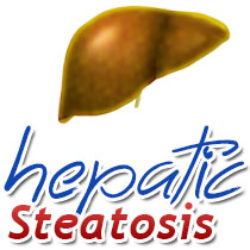Enlarged liver, or heptomegaly, is a syndrome in which the liver swells up bigger than its normal size. Enlarged liver can be a sign of many different liver diseases and is always an indication of a potentially serious condition. While many liver diseases can exist “under the radar,” without any symptoms, and not be considered a serious health risk, when symptoms such as enlarged liver do occur that is generally a sign of something to be taken seriously.
Symptoms
Enlarged liver is sometimes accompanied by pain in the upper-
Causes
Enlarged liver is a symptom or complication of a great many different diseases of the liver, including fatty liver disease, fibrosis, cirrhosis, any form of infectious hepatitis (A, B, or C), and cancer of the liver. Any disease that impairs liver functioning to any significant degree can result in enlarged liver, although any of them may not do so as well.
The underlying cause of the enlarged liver is the same as the cause of the disease, which may include alcohol abuse, obesity, diabetes, hereditary factors, viral infections (hepatitis), or side effects of various medications.
Children
Enlarged liver can sometimes appear in children of various ages. It can happen for various causes, not all of them the same as with adults. A child may experience enlarged liver as a result of a viral infection such as hepatitis A, B or C (sometimes acquired neonatally); Alagille’s syndrome, a narrowing and deterioration of the bile ducts that may happen in the first year of life; galactosemia, an inherited intolerance for milk sugars; Reye’s syndrome, a fatty liver disorder associated with childhood use of aspirin especially in conjunction with fever, potentially fatal (and the reason why doctors discourage use of aspirin for childhood diseases such as measles or chicken
pox that are often accompanied by fever); high doses of fat-
Treatment
Treatment of enlarged liver can only begin once the cause of the disorder has been identified as it depends on the underlying condition. The first step in treatment is therefore an exact diagnosis, together with examination to determine how far the swelling has progressed and what other symptoms accompany it (if any).
Examination of diet, exercise, alcohol intake, body weight, the presence of other conditions such as diabetes, and similar considerations all go into the diagnosis. Remember that enlarged liver is not a disease but a symptom of various diseases.
Obviously if the underlying condition is alcohol-
Enlarged liver resulting from infectious hepatitis may require medication to reduce the swelling, along with treatment for the infection itself. If the condition is a result of a very serious liver disease such as cirrhosis, cryptogenic cirrhosis or cancer of the liver, aggressive treatments including radiation and chemotherapy (for cancer) or a liver transplant for imminent or ongoing liver failure may be required.
In all cases, enlarged liver is something to take seriously. Your liver is something you cannot survive without, and any overt symptoms of liver disorder demonstrate a significant threat to your health.
